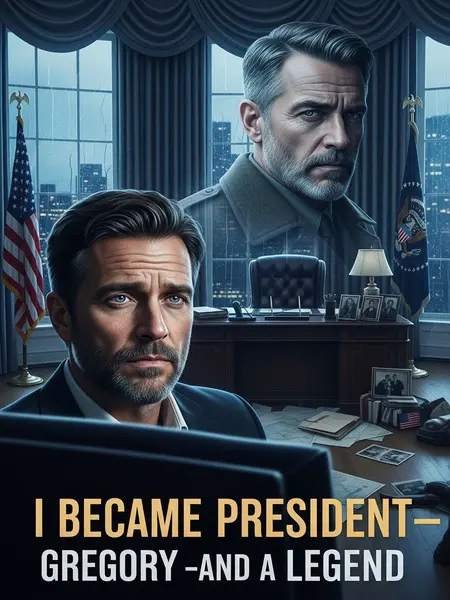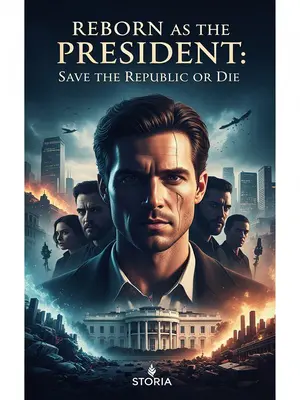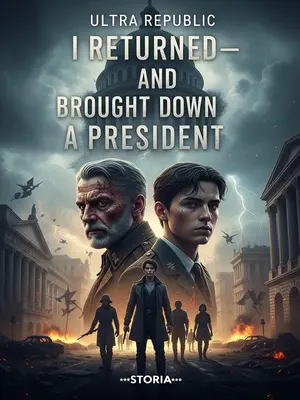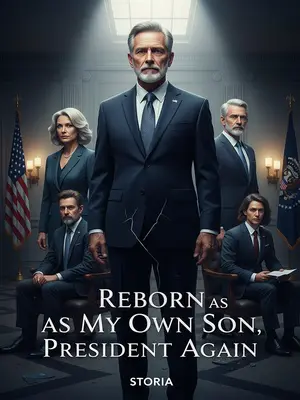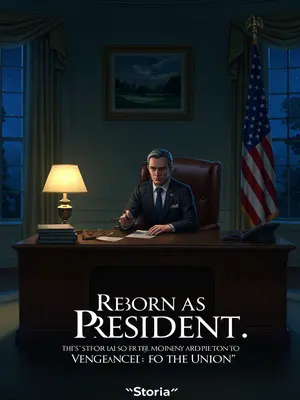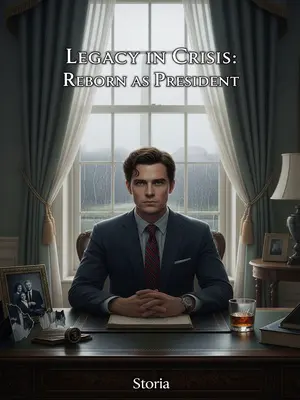Chapter 4: War at the Doorstep
Maybe it never existed.
War’s already at our door.
Why panic? I take a deep breath, forcing down the storm inside. My voice isn’t loud, but it’s enough to snap everyone in the room out of their shock. “If they come at us, we’ll fight back. If they try to drown us, we’ll build the levees higher. The Coalition wants a fight? I’ll make sure they regret it.”
I slam my palm on the desk for emphasis, the echo ringing in the marble chamber. “Prepare my order,” my gaze sweeps over the officials, finally settling on Wallace, “From now on, the capital is under martial law! Order the Joint Chiefs to draft battle plans immediately, and all local governments to fully support the military. I will personally go to Richmond to face their commander!” That’s a promise—I mean it.
Gasps ripple through the room. A few aides exchange worried glances. “You can’t go, sir. It’s too dangerous.” Quinn is the first to object, his wrinkled old face twisted in worry.
“Senator Quinn, are you questioning my resolve, or trying to shake the army’s morale?” I cut him off coldly.
I lock eyes with him, daring him to challenge me. President Booker—when did he ever fear the battlefield?
Now, in Caldwell’s body, that courage burns even brighter.
Before he can argue further, I’ve already stood up, my words ringing out: “I’ve made up my mind—end of discussion!”
We travel day and night. Convoys and helicopters thunder down the highway.
Chopper blades thunder overhead, Secret Service SUVs eat up the miles on I-95. The world outside blurs by—burned-out towns, fields gone fallow, the scars of civil war everywhere. Along the way, I keep pondering Booker’s experience dealing with hard men like Morgan and Sheridan—rivals who’d stop at nothing for power.
Richmond is our first line of defense. If it falls, the South is open.
When I arrive in Richmond, travel-worn, I frown at what I see.
The city walls are sturdy enough, but the troops look beaten down. Their gear’s a mess.
The air smells of rust and fear. What worries me most is that when I ask about the supply reserves, the general in charge—Colonel Jenkins—hesitates, looking troubled.
“Speak!” I slap the command table, anger flaring. “An army without supplies is doomed! Colonel Jenkins, how could you let this happen?”
He jumps, nearly knocking over his chair. “Sir… it’s my fault. The supply depot’s empty. We’ve only got enough rations for three days.”
Three days?
My heart sinks.
They’re almost here.
How are we supposed to fight this battle?
That night, we gather in Richmond city hall, the old brick building creaking in the wind.
“Gentlemen, the Coalition army is at our doorstep—Richmond is in imminent danger. Our biggest problem now is supplies. Without them, morale will collapse, and we’ll lose this battle.”
The room is silent. Jenkins bows his head even lower, wishing he could disappear.
“Sir, three things.” Foster finally speaks, standing tall, his voice booming. “First, send scouts to track the Coalition. Second, beef up city defenses and set up decoys on the highways. Third, if needed, I’ll split the troops and go get supplies from nearby counties—by force if I have to.”
I nod—Foster’s thinking matches my own.
He meets my gaze, and I see the old fire of Booker’s best generals. Especially reconnaissance and deployment—those are the very tactics my army used to beat our enemies.
We can’t just take what we need forever. Forcibly requisitioning supplies isn’t a long-term solution, and it could easily stir up resentment among the people.
Jenkins hesitates. “Sir, I fear General Foster’s method will make people angry… And the Coalition army is strong, our forces are thin. If we split up to get supplies, the city’s defenses will be even weaker…”
His voice is barely above a whisper. I look at Jenkins’s timid face and can’t help but sneer inside.
These are the generals of the fractured Union—already scared stiff by the Coalition.
“I’ll handle the supply issue,” I say firmly, sweeping my gaze over everyone. “I plan to implement the ‘county supply chief system’ in the Mid-Atlantic.”
